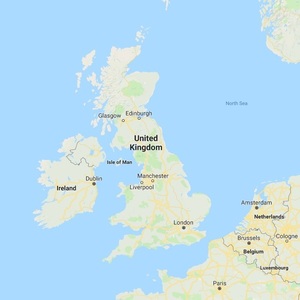UK confirms plans to set SAF mandate at 2% for 2025

SOURCE: Google Maps
July 23, 2024
BY Erin Voegele
The U.K. Department for Transport on July 22 sent a written statement to the U.K. Parliament confirming that, subject to Parliamentary approval, the agency will introduce a sustainable aviation fuel (SAF) mandate starting on Jan. 1, 2025.
The expected SAF mandate will phase in starting at 2% in 2025 and increasing on a linear basis to 10% in 2030 and 22% in 2040. According to the Department of Transport, regulations implementing the SAF mandate will place a cap on feedstocks used in the hydroprocessed esters and fatty acids (HEFA) process, but not until other types of SAF are also commercially viable. HEFA supply will not be limited under the mandate for the first two years. The HEFA cap is expected to be set at 71% in 2030 and 35% in 2040.
Advertisement
Advertisement
The mandate will also include a separate obligation on power-to-liquid fuels that will begin in 2028 and reach 3.5% of total jet fuel demand in 2040.
According to the Department of Transport, the mandate will include a buy-out mechanism for both the main and power to liquid obligations to incentivize supply while protecting consumers where suppliers are unable to secure a supply of SAF. These will be set at £4.70 and £5.00 per liter of fuel, respectively.
Advertisement
Advertisement
The agency said the buy-out mechanism provides a significant incentive for fuel suppliers to supply SAF into the market rather than pay the buy-out. The mechanism also sets a maximum price for the scheme, delivering emissions reductions at an acceptable cost, according to the agency, noting the plan also includes a review mechanism to help minimize the impact on ticket fares for airline passengers.
A full copy of the written statement to Parliament is available on the U.K. Department for Transport website.
Related Stories
CoBank’s latest quarterly research report, released July 10, highlights current uncertainty around the implementation of three biofuel policies, RFS RVOs, small refinery exemptions (SREs) and the 45Z clean fuels production tax credit.
The U.S. Energy Information Administration maintained its forecast for 2025 and 2026 biodiesel, renewable diesel and sustainable aviation fuel (SAF) production in its latest Short-Term Energy Outlook, released July 8.
XCF Global Inc. on July 10 shared its strategic plan to invest close to $1 billion in developing a network of SAF production facilities, expanding its U.S. footprint, and advancing its international growth strategy.
U.S. fuel ethanol capacity fell slightly in April, while biodiesel and renewable diesel capacity held steady, according to data released by the U.S. EIA on June 30. Feedstock consumption was down when compared to the previous month.
XCF Global Inc. on July 8 provided a production update on its flagship New Rise Reno facility, underscoring that the plant has successfully produced SAF, renewable diesel, and renewable naphtha during its initial ramp-up.
Upcoming Events










